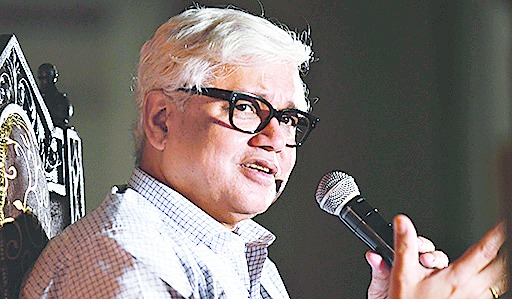♦ A STRANGENESS IN MY MIND: A NOVEL (Hamish Hamilton) By Orhan Pamuk
The reader is taken on a tour of the streets of Istanbul through Mevlut Karatas, an itinerant seller of yogurt and boza. Boza is a mildly alcoholic drink from the Ottoman times that has gone out of fashion now. For Mevlut, boza is not just a drink but a way of life, a symbol of the past, which is rapidly being forgotten in modern-day Istanbul. The “strangeness” in Mevlut’s mind relates to his devotion to boza that is a part of his fascination with an older, more distinctive Istanbul.
♦ THE BURIED GIANT (Faber) By Kazuo Ishiguro
In this novel set in ancient Britain, an elderly couple embark on a quest to meet their son, who, they believe, is awaiting them just a village or two away. But they cannot remember anything clearly. The attempt to recover lost memory, hidden identities and painful histories is this novel’s structuring principle.
♦ THE FESTIVAL OF INSIGNIFICANCE: A NOVEL (Faber) By Milan Kundera
This slim novel brings together Stalin, Kant, Hegel, Chagall and more in a narrative that merrily refuses to take either history or ontology seriously. Injustices of history, traumas of childhood, disappointments in love — all are drowned in laughter.
♦ FLOOD OF FIRE (Hamish Hamilton) By Amitav Ghosh

The third in the series of Ghosh’s novels built around the wrecked ship, Ibis, Flood of Fire continues the stories of some of the jahaji-bhais, whose lives have become intertwined as a result of that fateful voyage of the Ibis described in Sea of Poppies. The title refers to a surge of greed, which, according to one of the characters, will devour the world in Kali-yuga. It is the time of the Armageddon, the beginning of the end; the time is now, the novel’s present, unfolding in China in the period between 1839 and 1841, the tumultuous years of the first opium war.
♦ THE FIREBIRD (Hachette) By Saikat Majumdar
A very real sense of death permeates this book. Majumdar evokes death as a parallel to the withering away of the once-flourishing theatre in West Bengal. The decaying world is viewed from the perspective of young Oritro. Every place he looks at is enveloped in black — the shadowy stage, doom-filled, loveless beds, ramshackle eateries and city lanes on nights without electricity.
♦ TWO YEARS EIGHT MONTHS AND TWENTY-EIGHT NIGHTS: A NOVEL (Hamish Hamilton) By Salman Rushdie
The narrator is located a thousand years after the main event of the story, the War of the Worlds, changes history forever. It rages for two years eight months and twenty-eight nights, that is, 1,001 nights. So the notion of stories told against danger is meant to pervade the novel, although the danger remains just an idea, with no throb of immediacy.
♦ MY NAME IS RADHA: THE ESSENTIAL MANTO (Penguin) Translated by Muhammad Umar Memon
Saadat Hasan Manto has often been stereotyped as a writer specializing in Partition and prostitutes. Memon seeks to correct this reductionist view of Manto by presenting a new collection of his stories, which are less about social or political problems than about the characters themselves. Manto’s women shine, especially the Radha of the title, who declares with a flourish, “Once I’ve made a mistake, I stick to it.”
♦ THE DISCREET HERO (Faber) By Mario Vargas Llosa
Peru is changing for the better. But certain things remain unchanged — corruption, greed, the tussle for power. To stand up against such criminal tendencies, an unbending determination is required. That quality is displayed by the novel’s discreet heroes.
Llosa’s touch is evident in the way he brings together small town and big city, sharks and innocents. But he uses too many stereotypes to get to his point.
♦ KALKATTA (Pan Macmillan) By Kunal Basu
This is Calcutta as seen by a Bihari migrant — one of the several thousands who have made the city their home. As a representative of the dispossessed classes, Jamshed Alam, the protagonist, brings to the fore those corners of Calcutta that lie beyond the pale of genteel respectability. The stage of the novel is as crowded as Calcutta.
♦ SLEEPING ON JUPITER (Hachette) By Anuradha Roy
The novel lays bare the many forms of violence against women in India. Yet Roy’s women seem to be unbeaten: they are hardy, spirited and eager for life. Each violent moment is acutely imagined and presented with precision in Roy’s chiselled prose.










